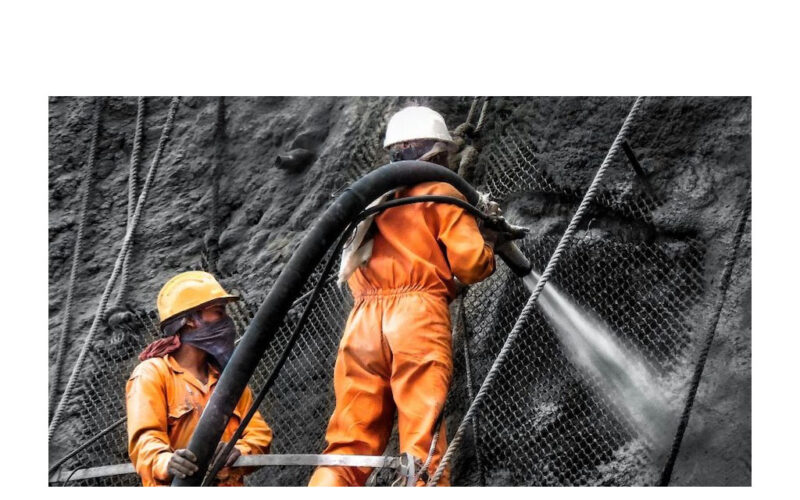Ester Mbathera
The absence of a minimum wage for the mining industry leaves room for companies to set wages as they see fit, creating disparities in worker pay and conditions.
Currently, minimum wage laws only apply to construction, security, agriculture, and domestic work sectors.
Maria Hedimbi, the spokesperson for the Ministry of Labour, Industrial Relations & Employment Creation said it is currently the responsibility of the employers and employees’ representatives within a particular industry to come up with a collective agreement that outlines conditions of service, including minimum wages for their respective industries.
“In the absence of a minimum wage in mining or any other industry (including those with minimum wages less than the N$18.00 per hour), the National Minimum Wage Order will take effect on 01 January 2025, except for Domestic and Agriculture workers that will gradually increase over a period of three years, starting at N$12.00 per hour and N$10.00 per hour respectively,” she said.
The challenges around the lack of a standard minimum wage are most felt by contractor employees in the mining sector, who often work under difficult and hazardous conditions.
*Martin Petrus was employed as a contractor at the former owner of the Tsumeb Smelter, Dundee Precious Metals now Sinomine to clean around the smelter.
His job includes cleaning walls and sometimes takes him to the highly toxic arsenic ponds.
*Martin Haufiku, an employee of Lenynessy, a contractor company at the Tsumeb Smelter, shared his struggles with reduced wages which stood at N$3 000 two months ago.
This is way below what he was earning from the previous contracted Pandereepo Cleaning Services offered them.
Under Pandereepo, Petrus earned a basic salary of N$6 600, supplemented by N$1 300 for medical aid and N$1400 for housing.
“On a good month with time, we would take home N$11 000. But now I don’t even know what to do with the money I earn. We have been asking at what rates we are paid but we do not get answers. If you ask too many questions they will find a way to fire you,” he said.
He said when Sinomine took over their salaries were adjusted to N$28 per hour which on month end they can take home over N$7 000.
Theo Pandereepo, whose contract ended in November 2023 with Dundee, said he had faced criticism for paying higher wages.
“The rate was N$25.41 per hour. I was working according to the labour laws but I decided to give them more. It was the best pay and no one can pay such. I did not want to enrich myself. I wanted everyone to be happy,” he said.
According to Pandereepo, several former employees managed to improve their lives, with some investing in cattle and housing.
For months the Revolutionary Union (RU) and the Mineworkers Union of Namibia (MUN) have been fighting with contractors in the mining industry for better wages for mine workers.
Namibia’s Revolutionary Union (RU) and Mineworkers Union of Namibia (MUN) have long been advocating for improved wages within the mining industry.
In a recent victory, over 600 employees of Beifang Mining Services, a contractor for Rössing Uranium and Swakop Uranium, received a N$2 000 salary adjustment.
RU’s central secretary, Julius Natangwe, credited this achievement to union pressure.
“We will never be slaves in our own country. The journey to justice might take longer than expected but we will definitely be getting there,” he said.
The Chamber of Mines of Namibia is also paying attention to the situation.
Chief executive officer Veston Malango acknowledged the concerns about contractor wages, indicating that the chamber is currently reviewing the issue.
“It’s a different setup altogether. It is something that we are now looking at. It becomes difficult because when you give a contract to a mining company, it gives the contract to subcontracts, the mine is not responsible for the workers of that contractor, their wage conditions and all that. you don’t get involved,” he said.
Malango explained that contractors operate with separate wage structures and are not chamber members.
For the chamber members, he said they are committed to ensuring that its members not only provide competitive wages but also comply with Namibian labour laws.
“If a company is a member of the chamber, you know that compliance with the laws of the country is assured because of the standards we set as a chamber,” he said.
He said chamber members strive for maximum wages which are benchmarked with the South African mining industry.
According to Malango, the chamber’s members typically pay about 15-18% more than their South African counterparts and approximately 25% more than other Namibian industries.
*Martin Haufiku (not his real name, as he fears retaliation from his employer)




